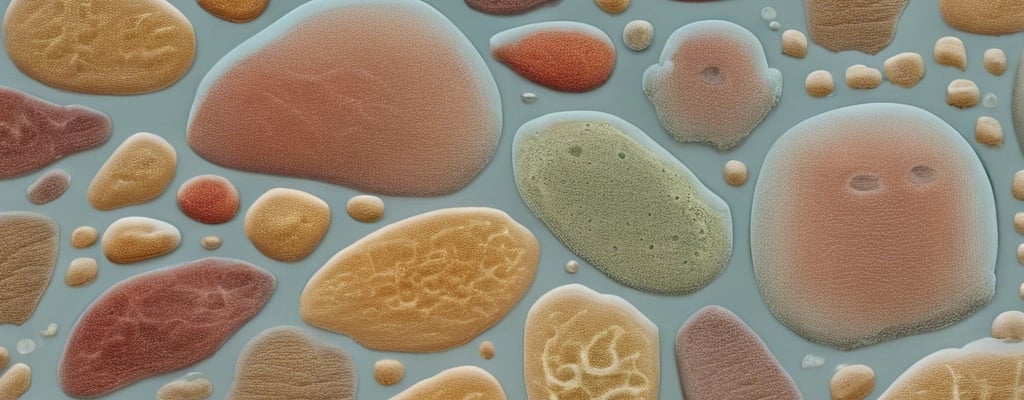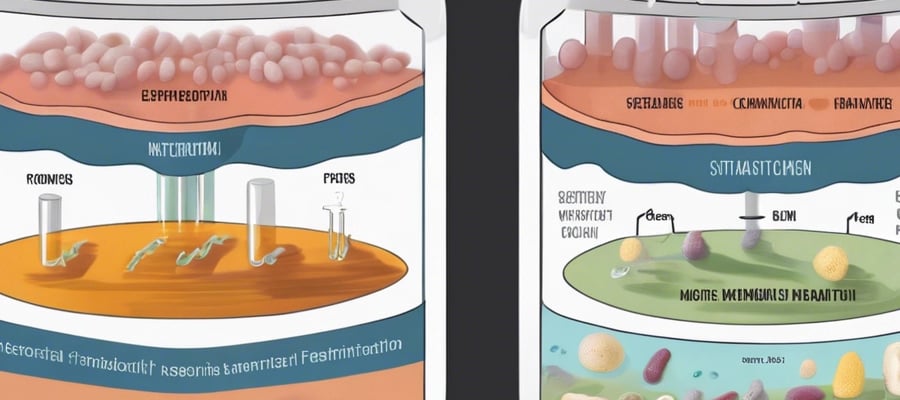Microbial Fermentation
Bioreactor fermenters have become indispensable tools in the fields of industrial enzyme production and antibiotic manufacturing. These sophisticated devices enable the large-scale cultivation of microorganisms, providing the necessary environment for optimal growth and product yield. Their application spans across various industries, from detergent manufacturing and food processing to the pharmaceutical sector.


Antibiotic Production
The production of antibiotics is another critical application of bioreactor fermenters. Antibiotics are compounds that kill or inhibit the growth of bacteria, and their production requires the cultivation of specific antibiotic-producing microorganisms. Bioreactor fermenters provide the necessary conditions for these microorganisms to thrive, ensuring the efficient production of antibiotics.
In the pharmaceutical industry, antibiotics such as penicillin, streptomycin, and tetracycline are produced using bioreactor fermenters. These fermenters enable the large-scale cultivation of antibiotic-producing microorganisms by maintaining optimal temperature, pH, and nutrient levels. The scalable production of antibiotics is crucial for meeting the global demand and combating bacterial infections effectively.
Bioreactor fermenters offer several advantages in antibiotic production, including high cell density cultivation, precise control over fermentation parameters, and the ability to operate in both batch and continuous modes. These capabilities ensure a consistent and reliable supply of antibiotics, essential for public health.
Industrial Enzyme Production
Enzymes are biological catalysts that speed up chemical reactions in living organisms. In industrial applications, enzymes are used to enhance efficiency and effectiveness in various processes. Bioreactor fermenters are pivotal in the production of these enzymes, ensuring that the microorganisms responsible for producing them are cultivated under ideal conditions.
In the detergent industry, enzymes such as proteases, amylases, and lipases are produced to break down stains and improve cleaning efficiency. These enzymes work at lower temperatures and pH levels, making detergents more effective while reducing the environmental impact. Bioreactor fermenters facilitate the cultivation of microorganisms that produce these enzymes, ensuring consistent quality and supply.
Similarly, in food processing, enzymes play a vital role in improving product quality, texture, and shelf life. Enzymes like pectinases, cellulases, and xylanases are used in fruit juice clarification, bread making, and beer brewing. The controlled environment of bioreactor fermenters allows for the precise regulation of growth parameters, leading to high yields of desired enzymes.


The continuous evolution of bioreactor technology has further enhanced their efficiency and applicability in industrial enzyme and antibiotic production. Modern bioreactor fermenters are equipped with advanced monitoring and control systems, allowing for real-time adjustments and optimization of fermentation processes. Innovations such as single-use bioreactors and automated systems have also reduced the risk of contamination and improved operational flexibility.
The integration of bioreactor fermenters with other bioprocessing technologies, such as downstream processing and bioseparation, has streamlined the entire production workflow. This integration ensures higher product purity and quality, meeting stringent regulatory standards.
Looking ahead, the role of bioreactor fermenters is expected to expand even further. The increasing demand for sustainable and eco-friendly industrial processes will drive the adoption of bioreactor technology in new applications. Additionally, advancements in genetic engineering and synthetic biology will enable the development of novel microorganisms tailored for specific production needs, further enhancing the capabilities of bioreactor fermenters.
Technological Advancements and Future Prospects
Conclusion
Bioreactor fermenters are instrumental in both industrial enzyme production and antibiotic manufacturing. They facilitate the large-scale cultivation of microorganisms, providing the optimal conditions for producing essential enzymes and antibiotics. As technology continues to advance, bioreactor fermenters will play an increasingly vital role in various industrial applications, contributing to improved efficiency, sustainability, and public health.
